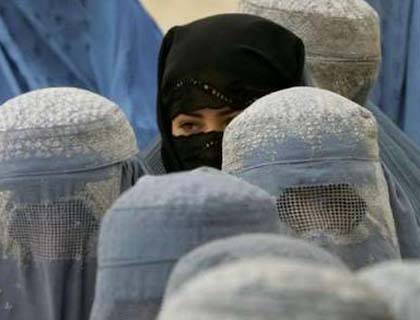One of the hot topics, now days, is the law banning violence against women. This law was approved by President Karzai three years ago. But the law was recently put in parliament and some MPs avoided agreeing with its articles like age of marriage, polygamy and etc.
On Wednesday, number of students mostly from Shariah faculty held a protest against the law, calling it anti-Islamic. It is not clear whether conservatives will allow the law to get the approval of MPs or not. But no doubt it has sparked new round of discussions and arguments about Shariah and modern laws that Afghan government is committed to.
It is important to note that by each passing year, cases of violence against women registered by Ministry of Women Affairs have also increased. On the International Day of the Elimination of Violence against Women, the Ministry of Women Affairs announced that it had registered 3500 cases of violence against women during past half of this year.
No doubt, frequently reports are released about barbaric and inhuman violence against women which sends shock down to everyone’s spine. It is not clear whether the level of violence has increased or whether due to the so-called press revolution, they find way into publicity. Anyhow, people, particularly women rights activists, are worried that simultaneous to foreign military withdrawal and declining financial assistance to the country, government, human rights institutions, civil activists, and government get weaker and be unable to protect women’s rights. From a weaker state, government gets forced to compromise on various issues, particularly women’s rights.
The concept of Taliban and their approach towards women accelerate the nightmarish prospective. People maintain that Taliban have not changed an inch and they, if returned to power, would impose the same radical and restrictive interpretation of Shariah laws.
However, efforts have been made to change the general concept of common people from Taliban and Taliban regime through innovating new terms and playing with words and terms. Watching media, it is not very complicated to understand that how terms that signal friendship and fraternity have largely poked in and become the daily dish of media and newspapers.
During past few years, many have tried to challenge the notion that people have from rebellions and insurgency. The question, “Who are Taliban?” largely circulates among Afghan people. Terms like “Good Taliban” and “Bad Taliban”, “Puppet and Real Afghan Taliban”, “Radical andModerate Taliban” have become familiar to each and every person.
Previously, people had a definite and clear answer to the question. They do not anymore. The concept that who are Taliban is somehow distorted as there are people who challenge that notion. Questions are put like this who are Taliban? Are they still those who established Islamic Emarat? Are they students graduated from Maddressah? No doubt, there is huge number of students graduated from Afghan and Pakistani religious Madressahs, but they are not linked to any insurgent groups fighting foreign and Afghan armies. They also maintain that Taliban are not those who actually established Emirate.
They might not prevent girls going to school if they are provided the chance to occupy a post in the government. There are also other definitions like Taliban are consisted of various groups that do not share a common ideology. Instead what has made them to stick together is common interest---opposing Afghan government.
However, efforts worked out somehow and created confusion among common people but least affected the educated and intellectual layer of the society. They still strongly believe that Taliban regime is of a kind that is not exposed to change that easily. They still strongly believe that Taliban fight for establishment of an Islamic regime based on understanding of Mullah Mohammad Omer and other Taliban leaders.
Without going against or in favor of the notion, there is something certain that Taliban leaders would not readily accept the women participation in civil services and other social, economic and political spheres as they are involved now. Even those who try to depict a new image of Taliban, they know it. And there is the possibility that the very people now holding administrative or political posts are forcedly silent, but in fact do not favor the emancipation of women. If the circumstance goes to their favor, they would prove far conservative and traditionalists.
Thus, there is one thing clear that, not only Taliban militants, but some people within the administration have anti-women tilt if the circumstance change and they are provided the chance to express their inner tendency. The danger would be multiplied in the absence of foreign forces in whose presence many dare not to pressurize government to include their Islamic interpretation of women rights and restrict laws previously approved with annexation of conditions.
But nobody should doubt there is occurring fundamental change in Afghan society. Public conscience has become much sensitive and there is growing support for women rights. In many big cities, common people’s concept of women has undergone fundamental change due to exposition to circulation of ideas and theories put by liberal wings.
Three years ago, girls were walking generally in group in order to feel safer against frequent boys’ teasing and cheatings. The change from this defensive position to a much assertive position of new Afghan women generation is the sign of fracture in the conservative culture, which is promising.

